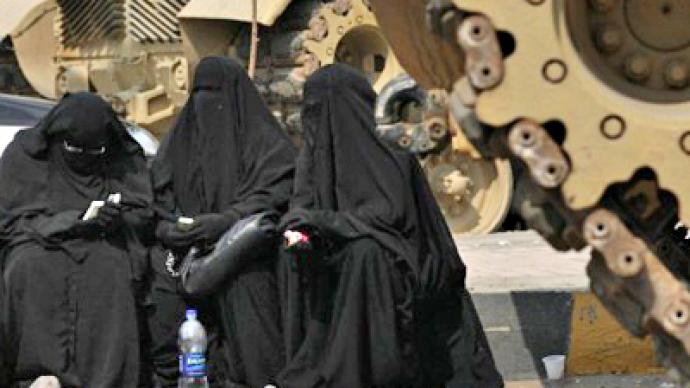Islamists parties of all stripes have won over two thirds of seats in Egypt’s People Assembly, the lower house of parliament. The Muslim Brotherhood’s Freedom and Justice Party alone will occupy almost half.
The High Election Committee’s announcement on Saturday came as no surprise to most Egyptians: exit polls have been waving a victory flag for the Muslim Brotherhood ever since the first post-Mubarak poll wrapped up on January 11. Indeed, the Freedom and Justice Party (FJP) has gathered over 47 per cent in the 498-seat Assembly. Islamist party-affiliated seats form two thirds of the People's Assembly – the FJP with 127 seats, while 108 more were won in first-past-the-post constituency votes.The Salafi party Al-Nour, which is even more conservative than the FJP, now holds some 121 seats – or about 25 per cent. Liberal parties were unable to claim more than 80 mandates: nine per cent for the Wafd Party and around seven for the liberal Egyptian Bloc. The remaining seats are split between another eleven parties. While the Muslim Brotherhood – which was banned under Hosni Mubarak – breaks into the political mainstream, twelve political unions were thrown overboard; several of them had represented the youth who toppled Mubarak’s regime back in February 2011. The new parliament, which besides the 498 member includes 10 appointed deputies, will plunge into its first session on Monday. “The train of democracy has entered the station and elected the first People's Assembly since the January 25 revolution," said the head of the High Election Committee, Abdel Moez Ibrahim, after announcing the final results of the parliamentary ballot.Meanwhile, Egyptians will return to polling stations in February to elect members of the upper house, the Shura Council. Once complete, the full parliament is to choose a 100-member board to draft a new constitution.Presidential candidates are scheduled to finish registration by April 15, with the prospect of a presidential poll set for June. Up until then, the North African country will be run by the Supreme Council of the Armed Forces with Field Marshal Mohamed Hussein Tantawi as its head.Hardline Islamist parties coming to power in Egypt will be an “earthquake” both for the country and for the region, says Yaakov Lappin, a reporter at the Jerusalem Post. Egypt under the Muslim Brotherhood will be a very different country from the one we are used to, he adds. “[The Muslim Brotherhood] are now trying to consolidate their political might to eject the military from power. Then they will begin a series of changes to bring Egypt in line with their agenda. This is going to be a much more religious, conservative place – and much more hostile to the West,” Lappin told RT.

